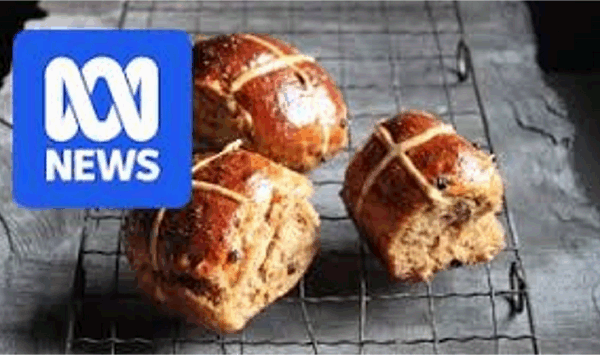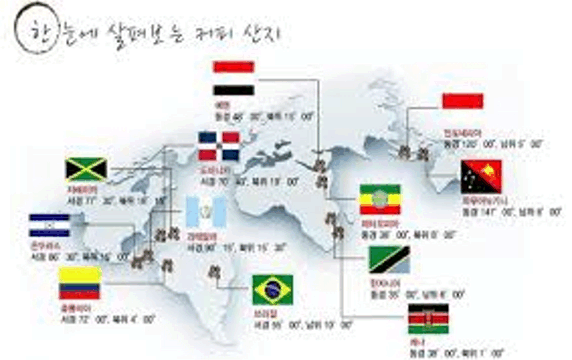정크푸드와 알코올이 호주 식단을 지배하고 있으며, 5명 중 1명만이 충분한 야채를 섭취하고 있다고 CSIRO는 밝혔습니다.
CSRIO의 보고서에 따르면 호주인 5명 중 1명만이 야채를 충분히 섭취하고 있는 것으로 나타났습니다.
CSIRO 건강한 다이어트 점수 보고서는 8년 동안 235,000명 이상의 호주 성인을 대상으로 설문 조사를 실시했습니다.
인구의 20%만이 야채를 충분히 섭취하고 있으며 알코올, 테이크아웃 음식, 과자류가 식단을 지배하고 있는 것으로 나타났습니다.
보고서에 따르면 건설 노동자들은 식생활이 가장 열악한 반면 퇴직자와 피트니스 산업에 종사하는 사람들은 가장 건강한 식습관을 보였습니다.
보고서는 먹는 음식의 양, 질, 다양성을 포함한 9가지 요소를 조사하고 호주 식생활 지침 준수 여부를 추정하여 100점 만점으로 평가했습니다.
100에 가까울수록 건강한 식단입니다.
보고서의 공동저자인 길리 헨드리(Gilly Hendrie)는 조사 대상자들의 평균 다이어트 점수가 100점 만점에 55점으로 단지 통과에 그쳤다고 말했습니다.
“이 점수는 우리의 식습관을 개선하고 국가적 허리 둘레를 줄이기 위해 수행해야 할 작업을 극명하게 상기시켜줍니다.”
우리 메뉴에는 무엇이 있나요?
보고서에 따르면 일주일에 약 28회 제공되는 임의 식품은 100점 만점에 20점으로 모든 연령층과 성별을 통틀어 가장 낮은 점수를 받은 식단 품질 영역이었습니다.
알코올, 케이크, 비스킷, 초콜릿, 제과 및 테이크아웃 식품이 가장 큰 원인인 것으로 나타났습니다.
야채에 대한 평균 점수는 100점 만점에 58점이었고, 성인 10명 중 4명만이 주 식사에서 세 가지 이상의 야채를 먹는다고 보고했습니다. 이는 건강한 식단의 지표입니다.
가장 높은 점수를 받은 카테고리는 음료였으며, 설문조사 응답자들은 100점 만점에 93점을 얻었으며, 이는 주로 청량음료와 주스 대신 물을 선택함으로써 달성되었습니다.
보고서에 따르면 주당 45회 제공량으로 건설 노동자와 미용 및 패션 분야의 사람들이 정크푸드를 가장 많이 섭취한 것으로 나타났습니다.
여성은 남성보다 식단의 질이 약간 더 좋았지만 야채 섭취량이 현저히 높았습니다.
Hendrie 박사는 “우리의 종합 점수를 향상시키는 것은 우리의 웰빙을 향상시키고 호주의 비만 위기를 해결하며 심장병, 제2형 당뇨병 및 일부 암과 같은 생활 습관병을 완화하는 데 중요합니다”라고 말했습니다.
식습관을 개선하는 방법
퀸즈랜드 대학의 지역사회 건강 및 웰빙 교수인 로렌 볼(Lauren Ball)은 이 보고서가 놀랍지 않다고 말했습니다.
“호주가 잘 먹을 수 있는 좋은 위치에 있다는 것은 우리가 오랫동안 알고 있던 사실입니다. 그러나 현재 호주인들이 먹는 음식에 관한 증거를 보면 그것은 그렇지 않습니다.”
그녀는 신선한 농산물을 구입하고 가공식품을 피하는 것이 다이어트를 빠르게 개선하는 쉬운 방법이라고 말했습니다.
Ball 교수는 “야채와 과일은 우리 일상 식단의 초석이 되어야 합니다.”라고 말했습니다.
“식사나 야채나 과일 함량이 높은 옵션, 또는 낮은 옵션 중에서 선택할 수 있는 위치에 있을 때마다 더 높은 것을 선택하세요.
“외부가 아닌 슈퍼마켓의 통로에서 나오는 모든 것, 포장되고 가공된 모든 것에는 나트륨 함량이 더 높을 것입니다.”
Ball 교수는 과일이나 채소의 공급이 많은 계절에 구매하여 가격을 낮추면 예산에 맞춰 건강식을 섭취하는 것이 여전히 실행 가능하다고 말했습니다.
“가장 쉬운 방법은 농산물 직거래 장터에 가는 것일 겁니다.”라고 그녀는 말했습니다.
“미리 계획하는 것은 예산에 맞춰 잘 먹을 수 있기 때문에 돈도 절약할 수 있는 또 하나의 큰 권장 사항입니다. 최선의 방법을 생각하고 준비하는 것뿐입니다.”
건강이 재산이다
볼 교수는 ‘건강에는 가격을 매길 수 없다’는 옛 격언이 이보다 더 적절했던 적은 없었다고 말했습니다.
“시간이 지나면서 우리는 건강이 오늘날의 전반적인 번영을 나타내는 진정한 지표라는 사실을 점점 더 많이 보고 있습니다.”라고 그녀는 말했습니다.
“우리 자신의 건강과 웰빙을 지원하기 위해 우리가 할 수 있는 모든 일이 점점 더 중요해지고 있으며 이는 우리 자신을 돌보는 방식 측면에서 우리의 모든 우선순위의 최우선 순위가 되어야 합니다.”
4시간 전에 게시됨4시간 전에 업데이트됨, 4시간 전에 업데이트됨
Junk food and alcohol dominate Aussie diets, with only one in five getting enough veg, CSIRO finds
Posted 4h ago4 hours ago, updated 4h ago4 hours ago
Help keep family & friends informed by sharing this article
abc.net.au/news/csiro-healthy-diet-score-report/102841124
Link copiedCOPY LINKSHARE
Only one in five Australians are eating enough vegetables, a report by the CSRIO has revealed.
Key points:
- The CSIRO asked more than 235,000 Australians about what they eat
- Those surveyed barely scraped a pass, with an average score of 55 out of 100
- Only four in 10 adults eat three or more different vegetables at their main meal
The CSIRO Healthy Diet Score report surveyed more than 235,000 Australian adults over eight years.
It found only 20 per cent of the population is eating enough vegetables and that alcohol, takeaway food, and confectionary dominate diets.
Construction workers had the poorest diets, according to the report, while retirees and those in the fitness industry were the healthiest eaters.
The report looked at nine factors — including quantity, quality and variety of foods eaten — and estimated compliance with the Australian Dietary Guidelines and scored it out of 100.
The closer to 100, the healthier the diet.
Report co-author Gilly Hendrie said those surveyed had only scraped a pass, with an average diet score of 55 out of 100.
“The score is a stark reminder of the work that needs to be done to improve our eating habits and reduce the national waistline.”
What’s on our menus?
The report found at about 28 servings a week, discretionary foods were the lowest-scoring area of diet quality across all age groups and genders, with a score of 20 out of 100.
Alcohol, cakes, biscuits, chocolate, confectionery and takeaway foods were found to be the biggest contributors.
The average score for vegetables was 58 out of 100, with only four out of 10 adults reporting that they eat three or more different vegetables at their main meal — which is the indicator of a healthy diet.
The best-scoring category was beverages, with survey respondents scoring 93 out of 100, achieved predominantly by opting for water over soft drinks and juices.
At 45 serves per week, the report found construction workers and people in beauty and fashion ate the most junk food.
Women had only a slightly better diet quality than men but had a markedly higher vegetable intake.
“Improving our collective score is important to increasing our wellbeing, tackling Australia’s obesity crisis, and mitigating lifestyle diseases such as heart disease, Type 2 diabetes and some cancers,” Dr Hendrie said.
How to improve your diet
Lauren Ball, professor of Community Health and Wellbeing at the University of Queensland, said the report was unsurprising.
“It is something that we’ve known for a long time, that Australia is so well positioned to eat well, however, that’s not what we see when we look at the evidence in terms of the food that Australians eat at the moment.”
She said buying fresh produce and avoiding processed foods were easy ways to quickly improve diets.
“Veggies and fruits should be the cornerstone of our daily diet,” Professor Ball said.
“Whenever you’re in a position to make a choice between a meal or an option that’s higher in veggies or fruit, or lower, choose one that’s higher.
“Anything that comes from the aisles that you walk up and down in supermarkets as opposed to the outside area, anything that’s packaged and processed, they’ll be higher in sodium.”
Professor Ball said eating healthy could still be viable on a budget, by buying in season when a fruit or vegetable is at high supply, which lowers the price.
“The easiest way to do that would probably be going to a farmers market,” she said.
“Planning ahead is another big recommendation that can save money as well because you can eat well on a budget, it’s just a matter of thinking about the best way to do that and being prepared.”
Health is wealth
Professor Ball said the old adage that ‘you can’t put a price on your health’ had never been more relevant.
“Increasingly over time, we’re seeing that health is a really true indication of overall prosperity in today’s day and age,” she said.
“Anything we can do to support our own health and wellbeing is becoming increasingly important and this should be at the top of all of our priorities in terms of the way that we can look after ourselves.”
Posted 4h ago4 hours ago, updated 4h ago










